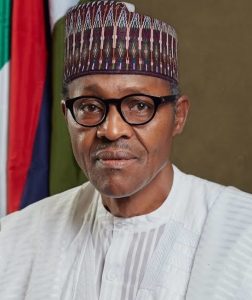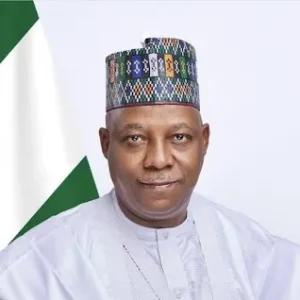
The House of Representatives at plenary on Tuesday approved the sum of N17.127 trillion budget for 2022 fiscal year, against the sum of N16.391 trillion proposed in the budget estimates submitted by President Muhammadu Buhari in October.
The 2022 Appropriation Bill, which was increased by N736 billion, was passed following the consideration and adoption of clauses in Bill’s report presented by the Chairman,
Appropriation Committee, Hon. Muktar Betara.
The House also approved an increase in the oil price benchmark from $57 to $62; increased the deficit by N98 billion to accommodate some other requests of national importance not provided for in the budget estimates and which could not be covered by the revenue increase.
The lawmakers further approved the 1.88mbpd as daily oil production; $62 oil benchmark price; N410/$ exchange rate; 4.2% GDP growth rate and 13% inflation rate for the 2022 fiscal year.
The breakdown of the budget showed that Statutory Transfer is to gulp N869.667 billion; Recurrent Expenditure of N6.910 trillion; Capital expenditure of N5.467 trillion and Debt Services of N3.870 trillion for the year 2022.
Under the statutory transfers, National Judicial Council (NJC) is to get N120 billion; Niger Delta Development Commission – N102.783 billion; Universal Basic Education – N112.287 billion; National Assembly – N139 billion; Public Complaints Commission – N11.190 billion; Independent National Electoral Commission (INEC) – N219.544 billion; National Human Right Commission – N4.500 billion; North East Development Commission – N48.076 billion; Basic Heath Care Fund – N56.144 billion and National Agency for Science and Engineering (NASENI) – N56.144 billion, respectively.
A breakdown of the National Assembly budget showed that N33.267 billion is for Senate; N51.995 billion for House of Representatives; N7.734 billion for National Assembly Service Commission; N9.602 billion for Legislative Aides; N118.970 million for Senate Public Account Committee; N142.764 million for House Committee on Public Account; N8.308 billion for General Services; N7.374 billion for National Institute for Legislative and Democratic Studies; N471.335 million for Service Wide Vote; N581.848 million for Office of Retired Clerks and Permanent Secretaries; N125 million for Senate Committee on Appropriations and N165 million for House Committee on Appropriations.
The sum of N100 billion was also approved for Zonal Intervention Projects; N10 billion for National Assembly liabilities; N300 million for National Assembly e-Library; N139 million for National Assembly Dashboard; N1 billion for constitution review and N20 billion for special intervention projects.
Under the recurrent (non-debt) expenditure, the House approved the sums of N350 billion for National Social Investment Programme (NSIP); N4 billion for Employee Compensation Fund; N30 billion Contigency (Recurrent); Treasury Single Account (TSA) – N1 billion; N50 billion for Police Operations Fund; N50 billion for hazard allowance for health workers; N50 billion for enhanced allowance for Nigeria Police; N300 billion for National Poverty Reduction with Growth Strategy (FG commitment, including NSIP upscaling); N40 billion for settlement of MDAs electricity bills debt; N65 billion for Presidential Amnesty Programme: Reintegration of transformed ex-Militants; N115 billion for military operations: Lafiya Dole and other operations of the Armed Forces; N1 billion for severance benefits to retired Heads of Government Agencies and parastatals; N2.300 billion for entitlements of former Presidents/Heads of States and Vice Presidents/Chief of General Staff; N125 billion for Pension Protection Fund; N10 billion for benefits of retired Heads of Service and Permanent Secretaries and Professors; N11 billion for arrears of pension liabilities; N30.064 billion for defunct privatized agencies pension; and N125 billion for payment into redemption fund.
Also, the House approved the sum of N215.811 billion budget for the Federal Inland Revenue Service (FIRS), out of which the sum of N119.068 is for personnel cost, N60.016 billion is for overhead cost and N35.097 billion is for capital expenditure for 2022.
In the same vein, the House passed through third reading the Finance Bill, which seeks to amend the Capital Gains Tax Act, Companies Income-tax Act, Federal Inland Revenue Service (Establishment) Act, Personal Income Tax Act, Tertiary Education Trust (Establishment) Act, Value Added Tax Act, Insurance Act, Nigeria Police Trust Fund (Establishment) Act, National Agency for Science and Engineering Infrastructure Act, Finance Control and Management Act, Fiscal Responsibility Act and other related matters.
Meanwhile, the lawmakers also approved the President Muhammadu Buhari’s virement request of N276.757 billion from the N13.588 trillion approved in the 2021 Appropriation Act, as well as N983 billion approved in the Supplementary Appropriation Act, on July 26th, 2021.
Buhari, in the letter read by the Speaker, Hon. Femi Gbajabiamila, said: “You may also recall that during the signing of the 2021 Appropriation Act, I mentioned that, where necessary, I will revert to the National Assembly with a request for amendment, virement or other appropriate adjustments to ensure that the core objectives of the budget are accomplished.
Accordingly, the 2021 budget implementation is faced with challenges that will require additional funding for some critical and urgent line items in the budget.
“The purpose of this letter, therefore, is to forward the comprehensive virement proposal for the consideration and approval of the National Assembly. The details of the expenditures proposed for the virement are attached herewith as schedule 1, while schedule 2 shows the sources of the funds to be vired for the items in Schedule 1. In the light of the above, I implore the House to urgently consider the virement proposals to support our efforts to improve the well-being of our citizens,” he said.
In a similar vein, the House approved the extension of the implementation of the 2021 Appropriation Act by 90 days.
The resolution was passed sequel to the adoption of a motion sponsored by the Majority Leader, Hon. Ado Doguwa.
Earlier, in his last day of the plenary speech, the Speaker, Hon. Gbajabiamila reiterated the resolve of the 9th National Assembly towards improving the appropriatio process to ensure a more effective and efficient allocation and use of our national resources.
He however said that a recurring challenge is how best to ensure that the ministries, departments and agencies of the federal government adhere strictly to the letter of the appropriation law.
He therefore said in the new year, the House will explore further options for legislative action in this regard.
Gbajabiamila said: “This is a subject of grave concern, especially now when we must contend with the reality of limited resources amid significant developmental challenges. During consideration of the 2022 Appropriation Bill, we were inundated with requests for funding from ministries, departments and agencies of government, all of whom require additional funding to effectively discharge their mandates. We recognise the genuine urgency of many of these requests and we have tried within the reality of limited revenues to meet the most critical needs.
“However, one thing that is now abundantly clear is that the legislature needs to act to reform the envelope system currently in place because it imposes conditions that do not make for optimal outcomes.







